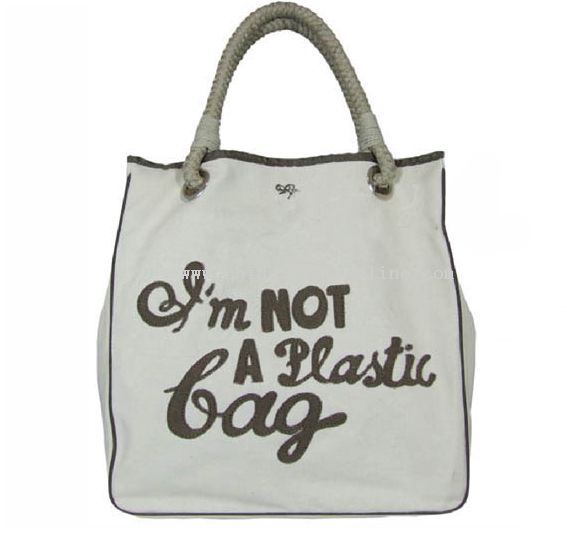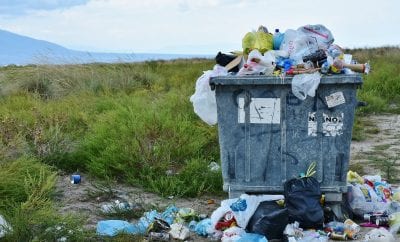Lifestyle
Fighting Against Global Warming
Did you know that there is a garbage “patch” the size of Texas in the middle of the Pacific Ocean swimming with plastic bags? That is right, whatever does not end up in land fills, or on the streets, seems to ravage the environment. Moreover, all of this is happening because recycling and conservation do not fit into easy-to-open convenience packaging.
So the question is, do plastic bags (even paper bags, too) need to be banned by law to help eliminate some of this trash? Alternatively, does society need to take control of their habits without needing to be told to do so? Global warming is a crisis that must be handled in the most eco-friendly fashion.
With the ongoing heat wave in San Diego, and increasingly strong weather patterns affecting the globe, it seems obvious that if consumers cannot change their lifestyles and learn to care for the environment, things will continue to worsen. The banning plastic bags will be inevitable.
The use of plastic bags is harming the environment because of the irresponsibility of the consumer and in the manufacturing if the bags. The production of plastic bags consumes the world’s scarce oil reserves in astronomical amounts. The Natural Resources Defense reports that plastic bags eat twelve million barrels of oil annually. In addition to depleting the earth’s oil supply, plastic bags litter the earth in various forms. Much of the littering comes from the lack of consumers recycling the 100 billion plastic bags used each year!
Bags from garbage dumps blow through the air being trapped in trees, clogged in drains, and strangle wildlife (especially marine life). According to Jared Blumenfield, head of San Francisco’s environment department, plastics bags are expensive to remove from trees, costing up to $150 dollars each time they have to send somebody out to remove the bags. Thus, the environment is not only paying for the expenses, but the country is paying greatly for the litter, also.
Before the government bans plastic bags, the consumer can get prepared for the ban and change their habits in various ways. Recycling plastic bags needs to become the number one priority for consumers. Currently, consumers are using an upward of 100 billion plastic bags per year, and less than five percent of those bags are making it into the blue bin! Since recycling and conservation have become important issues in the United States, many companies are trying to make recycling a daily part of life for the consumer. For example, last year California enacted AB 2449, which requires large stores to “provide at-store recycling programs” for plastic bags. I have made it a habit to bring back the plastic bags that I used on my last trip to the store, stuff them in the bin, and then continue shopping. These programs work because they do not require any extra time to incorporate recycling into the consumer’s lifestyle (no more going to the dump).
Furthermore, consumers can avoid plastic bags altogether and purchase reusable bags.
Stores such as Trader Joe’s and Henry’s Farmer’s Market are selling canvas bags that can be reused for each shopping trip. The bags are useful if you live in an apartment complex such as mine that does not offer recycling bins. I purchased five bags and stored some in my car and one in my purse, that way I can never have an excuse to use plastic bags. Of course, plain ole’ canvas bags can be boring, thus prompting store to develop fashionable shopping bags. Recently, Whole Foods released a bag reusable canvas bag designed by world renowned Anya Hindmarch. Hindmarch described being eco-friendly and still looking good when she stated, “I hate the idea of making the environment trendy, but you need to make it cool and then it becomes habit.” Movements like this will decrease the use of plastics and increase the recycling rate by encouraging consumers to trade in ugly plastic bags for fashionable totes.
Unfortunately, not enough consumers are using the aforementioned solutions to change the environment, therefore a “plastic bag ban” is the inevitable action needed to force consumers to recognize the necessity to change their habits and use a different source of packaging. The concept of transforming into an eco-friendly society is easy to say, but Americans are not taking it seriously because they do not want to change their lifestyles. Proof that people are not taking the environmental crisis seriously is the statement, “There’s no way I’m going to put a smelly fish in a canvas bag,” by Anya Hindmarch, the same designer mentioned earlier for creating reusable canvas bags. This “can’t do” attitude is stopping consumers from reevaluating their habits and making better choices for the environment.
Thankfully, stores (and states) are taking action to increase the likelihood of consumers to be more eco-friendly through incentive and punishment programs. Many stores are charging their patrons a small fee if they chose to use a plastic bag. For example, Ikea started charging five cents per plastic bag. On the other hand, some stores are offering incentives for those that bringing their own reusable bags. Both Whole Foods and Trader Joe’s give cash rewards to shoppers using their own bags. The programs are a great way to jolt people into seeing the urgency of the situation, but it still is not enough, plastic bags need to be banned to prove to consumers that there is a crisis that must be taken care of before it gets out of control.
Albeit you are asking, “What will stores use for packaging?” when plastic bags are banned. In addition to consumers bringing their own bags, plastic bags will be replaced with compostable bags. Compostable bags are made from potato or cornstarch and provide a great alternative to plastic because they can be used in compost piles. The recent plastic bag ban in San Francisco sparked the compostable bag movement, and Jared Blumenfield, head of the environmental group feels that this alternative will increase composting and decrease the amount of garbage that ends up in landfills. Another benefit of the compostable bag is it provides no excuse for the consumer to throw it away, in turn eliminating the need for plastic bags.
Ultimately, banning plastic bags will benefit the environment and teach consumers to be more responsible for their actions. People will learn to be more environmentally conscience and eventually take more initiative to protect the earth such as eliminating paper bags, which use 14 million trees each year, and even plastic bottles. The ban will force citizens to use biodegradable bags, canvas bags, recycle their leftover plastics, and take part in larger environmental movements. It is easy for people, even I to be stuck in habits that make our lives so convenient, but there comes a time when we need to take a stand and change our lifestyles to better suit the world that we live in. Remember that plastic needs us to survive, it is not the other way around – so I challenge you to stop using plastic bags and join the movement to protect the earth from destructive human habits.





1 Comment